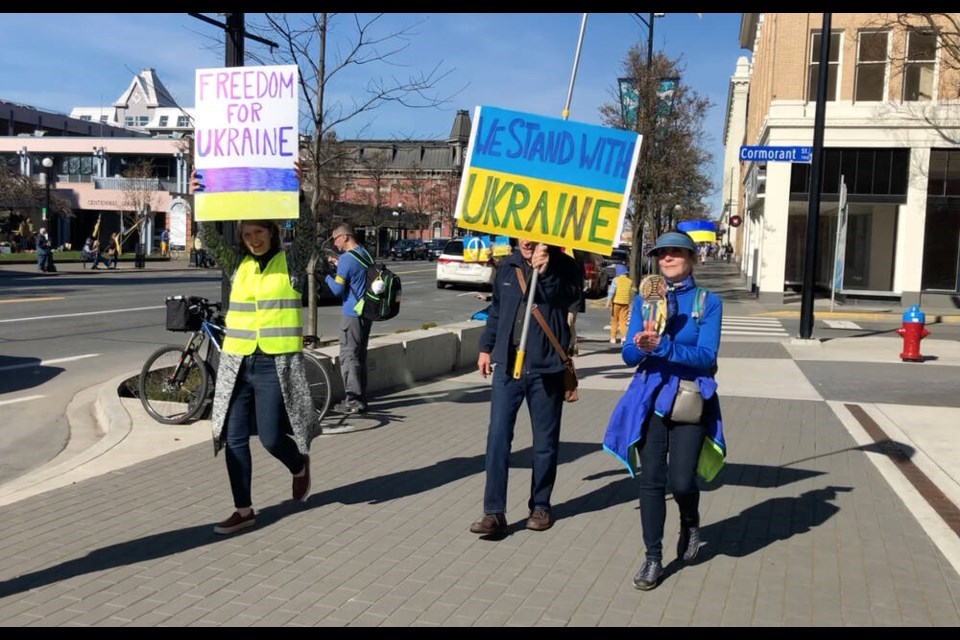With millions of Ukrainians fleeing their country from the Russian invasion, Premier John Horgan says thousands, or even tens of thousands, could make their way to British Columbia.
Horgan spoke at a press conference Friday after meeting with members of the Ukrainian community in the province earlier in the day. He said the province is working to set up a 1-800 number for British Columbians who are looking to donate to the effort, or provide support in other ways.
“Quite frankly, the modestly sized Ukrainian organizations [in B.C.], whether they be in our major centres or in regional hubs, are overwhelmed by the generosity and good wishes of British Columbians and we need to manage that,” Horgan said.
“We ask for patience from the broader public as we put together infrastructure to accept the benevolence and generosity of British Columbians towards the courageous and gracious people of Ukraine.”
The United Nations says 2.5 million people have fled Ukraine since Russia invaded the country on Feb. 24. With thousands of refugees expected to make their way to B.C. in the coming months, Horgan said finding housing for them will be the number one challenge.
“We don't know how many people will be coming. Canada has the third largest population of Ukrainians on the globe,” he noted, behind only Ukraine and Russia.
“Housing is the number one challenge, we know this in our domestic activity, much less opening up our doors to newcomers.
“I know in the community of faith that I'm attached to, people are renovating their basements as quickly as they can, to prepare a suite, or they're emptying out rooms that have been filled with boxes to make sure there is a space for people if it's needed.”
Horgan said his government is looking at options to house a possible wave of refugees, like using vacant off-season ski hill accommodation and off-season student housing.
He noted that many fleeing Ukrainians may try and stay in Europe to be closer to their homeland, but “Canada is a desirable location for the Ukrainian community to come to because of the support systems they'd have when they arrive with community.”
To date, Ukraine's neighbour Poland has taken in the bulk of refugees.
Horgan spoke with other premiers earlier in the week about organizing a Canada-wide response to the possible influx or refugees, which would require increasing childcare and school spaces, and providing services like trauma counselling.
“There's a long, long list of needs that we're assembling right now and preparing for, but until we know who's coming, it's really hard to pinpoint just where we're going to focus our attention,” Horgan said.
“People internationally, people from across Canada, coming to British Columbian to settle puts extraordinary pressure on our infrastructure – our schools, our hospitals, our housing stock. All of those issues need to be addressed.”
With Ukraine calling on most men in the country to stay and fight, Horgan said he expects mostly women and children to arrive in B.C.
"Talking to the community who have eyes and ears back home is the best way for us to be well prepared," Horgan said.
Back in 2015 and 2016, Canada welcomed more than 25,000 Syrian refugees during the peak of that country's civil war. The were some of the first of the Syrian refugees to settle in Kelowna during that time, and Mohammad Alshahoud says there are who have now settled in the Okanagan.




